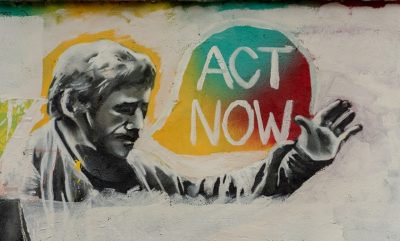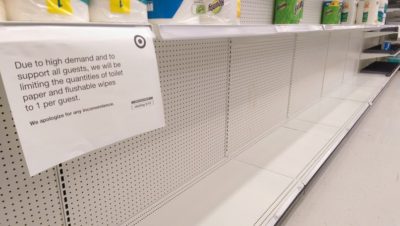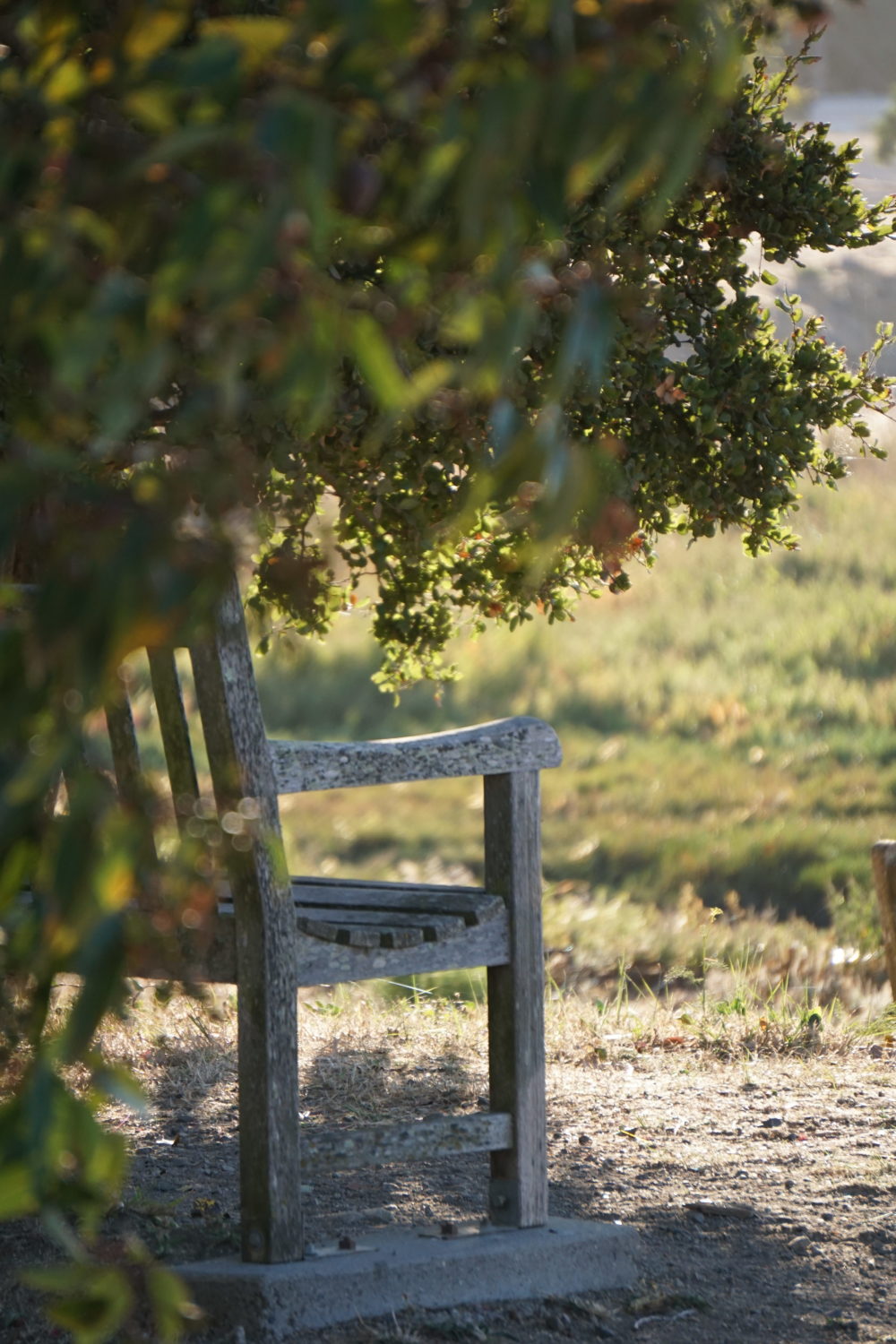by Christina Leimer | Researching Consciousness for Social Change
What consciousness is and how much we can know are two of the most important unanswered questions in science (Scientific American, 2018). The questions aren’t new. Philosophers and theologians have thought about who we are and the nature of reality for eons. Psychologists explore behavior, perception and how we make meaning. Neuroscientists have joined the game too. They’re interested in what produces consciousness and how, the assumption being that its origin is the brain.
As a sociologist, I’m interested in the ways who we are affect our human systems, and conversely, how those systems influence who we are. What can we know about the world from various states of consciousness (SOC), how do we experience these states, and how can they be used?

Photo by Christina Leimer
The imminent late 19th century psychologist William James, founder of the American Society for Psychical Research, believed thinkers from a wide range of fields would be necessary to crack this enigma.
James thought that the brain’s role in consciousness isn’t as a producer but more of a transmitter, admitting and transferring information (Pim van Lommel, Consciousness Beyond Life: The Science of the NDE, pg. 289). In her book Infinite Mind: Science of the Human Vibrations of Consciousness, UCLA physiologist Valerie Hunt agreed, saying “the brain has been studied in an airtight glass jar, a closed system, while we have tried to deduct from it an open system—the mind.” (pg. 87) Shamans, across the wide range of cultures and traditions, experience alternate states of consciousness, dreams and visions as real places we can go to and information that exists independently of individual human brains.
In my own experience, watching my different SOCs, it appears that consciousness is a non-linear spectrum with states shading into other states. (Hunt believes too that consciousness is a continuum. p. 91). If we can balance ourselves in the mixing zones, we can operate from multiple SOCs simultaneously. The place in the spectrum that my brain produces seems to be the analytical. When I’m thinking, reasoning, that process feels solidly centered in my brain. If I’m obsessing, churning over thoughts and worries, that too feels rooted in brain and nervous system functioning.
Most often, when original ideas occur to me, I’m not thinking about it at all. I might be riding my bike, or working around the house or in the tub. The thought or image or words just appear in my awareness whole. If I don’t act on the idea—write about it, let’s say—then I sometimes see it start showing up elsewhere. Others are writing about it. It’s as if the idea is in the air for anyone who can tune into it.
Recently, I’ve experienced sensation that felt like it was behind me, outside of my physical body, but that entered my body and appeared to me as song or images. In the case of the music, my brain must have been involved somehow, but the tones felt like they were moving from behind my shoulder blades through my chest and I simply allowed them to flow through me, singing them. In the case of the image, it seemed to originate from behind—in the region of the visual cortex—while near-simultaneously emerging from my chest where I could see it as a vision in front of me. Again, my brain didn’t seem to be the producer.
Another SOC that may involve the brain and its interaction with something else—whatever mind turns out to be, or whatever we would call those places, those realities, shamans visit—is in dreams. For me, it’s common to simultaneously experience the I that’s observing my dream and the I that’s in the dream. I know while dreaming that I’m dreaming.
My own experience makes me believe, like William James, that only open-minded, multidisciplinary exploration and willingness to accept unusual, extraordinary or exceptional human experiences—as parapsychologist Rhea White called them—rather than explain them away will get us to answers to this puzzle.
Currently, with the encouragement of the Dalai Lama, scientists and Buddhist monks are collaborating to find out what each can contribute to these vexing questions. Contemplatives in the Buddhist tradition, and some others, have thousands of years of experience observing the mind and states of consciousness. David Presti, University of California neurobiologist and psychologist who’s coordinating these studies, believes this collaboration could result in a revolution of understanding as big as any ever made in science (Presti, Mind Beyond Brain: Buddhism, Science and the Paranormal).
What I still see missing is social science. In Communing with the Gods: Consciousness, Culture and the Dreaming Brain, neuroanthropologist Charles Laughlin points out that we don’t pay much attention to the social and cultural information in dreams. I know we’re inherently curious about ourselves. No problem. We need to be. But we don’t live in a vacuum. We’re impacted by the culture and systems we live in. They are the impetus for science disbelieving and ignoring our anomalous human experiences. Our cultural beliefs and practices are cutting us off from knowing and being all that we are. As we come to understand our new capabilities, we need to set ourselves free to use them. That means changing culture and social systems to support the new us. That’s why sociologists should be part of this revolution.
Subscribe
Christina Leimer, aka The Intuitive Sociologist
by Christina Leimer | As the World Changes
Today I’m thinking about the responses I see to the corona virus #stayathomechallenge #shelterinplace #lockdown. Someone on Twitter asked, will this pandemic make us better, worse or not change us at all.
The way I see the world, how we come out of this depends on what lessons we learn and whether we use them to change our social systems and culture.
The changes after the September 11 terrorist attacks led us into a series of seemingly unending wars, searches & restrictions at airports, and more surveillance of citizens. The 2008 financial crisis resulted in far more renters than homeowners after bankruptcies, more extreme inequality and political polarization. It doesn’t seem that our fundamental ways of life changed for the better with either of these crises.

Photo by Rod Long at Unsplash
During this corona virus crisis, I see many people stepping up, offering assistance to others. Some are paying contract workers to help them make it through, checking up on elderly and ill neighbors, making trips to the grocery store or drug store for people who are more at risk, even collecting or making masks and ventilator parts to help hospitals running short on these necessary supplies.
At the same time, I see some people hoarding, price gouging, buying guns, fighting and ignoring social distancing orders—even flaunting their willingness to expose others to a potentially lethal virus.
Most of us are probably just doing our best to comply with public health advice to protect ourselves and others. But human nature is always going to have this mix—both within us and among us. The balance lies in what our culture expects and allows.
Altruism, compassion and the desire to do something meaningful, something that’s greater than ourselves are as much a part of human nature as fear, anger, greed and self-centeredness. But American culture highlights the latter. The news dwells on it, and it’s what much of our entertainment is based on. On any news day, it’s murder, bombings, hate, deception, child abuse, all the human depravity. Sure, we need to know about threats. It helps us survive. But when that’s all there is, and when crime, violence and brutality are the basis of entertainment, we’ve gone way beyond the need to know for survival. In many shows, movies, and games the violence is gratuitous and extreme. Then there’s the greed. The main character in the 1987 movie Wall Street proclaiming “greed is good” became an American mantra along with Ayn Rand’s philosophy of maximizing your own happiness and goals. These characteristics are strong enough in American culture that altruism, compassion and inspiration are often viewed as sentimental, ineffectual or weak.
Artists, musicians, writers, photographers, filmmakers, journalists, producers and agents, you create our cultural stories and the images that tell us who we are and show us our capabilities and possibilities. You produce the food for our spirit. Stories need tension, but physical conflict is a lazy default. Why not draw out the drama, the sacrifice, the personal and moral dilemmas and decisions to do the right thing—especially when it contradicts cultural expectations? Why not show us the complexity and complications of life? Why not dream?
For the rest of us, we either support or undermine these characteristics of our culture through the choices we make. It’s our power. What shows do you watch? What books do you buy? What music do you listen to? What do you share on social media? What do you talk about?
Maybe we’re in a turnaround phase on this one. Last year, one of the most successful films was A Beautiful Day in the Neighborhood. I see a lot of social media praise for people like Ambassador Marie Yovanovitch, David Holmes and Colonel Vindman, people who told the truth in the face of pressure to keep quiet. I’m seeing many thank you messages to store clerks, healthcare workers, police and firefighters and others who are keeping the infrastructure that supports our basic needs running while the rest of us are told to stay home to minimize the pandemic.
Already, the U.S. president is getting antsy, wanting people to go back to work to make sure the economy keeps humming along. Real change takes time, time for reflection, time to adjust. But it can happen in an instant when the time is right. When the old way has worn itself out. If we no longer prop it up, a new way can come to life.
Subscribe
Christina Leimer, aka The Intuitive Sociologist
by Christina Leimer | As the World Changes

Stores limit purchases after toilet paper supplies sell out due to hoarding at start of corona virus scare. Photo by Christina Leimer
Whether for individuals, families, communities or whole societies, change is most likely when there’s a crisis. That’s now. With global travel nearly none, large social events cancelled, schools and non-essential businesses shuttered so people can #ShelterInPlace, the coronavirus lockdown is giving us ample time to think about how we do what we do and why we do it that way. We have time to notice the effects and question taken-for-granted assumptions. Americans don’t typically reflect at the societal level. So, what if we did?
The huge disrupters are 1) a global pandemic, and to try to stop its spread, 2) social distancing. We can’t know how long the #stayathomechallenge will last. Many scientists are working to develop a vaccine—but even when they do, there will be other global disease outbreaks. What can we learn and change that will help us prevent disease spread in the future and handle it when prevention fails?
A few things I question:
Global Travel: Yes, it’s interesting and informative and helps us realize we’re all connected. But how much of it do we really need? For business, how much of it is a perk or status-driven? With easy videoconferencing access, why not use this technology most of the time instead of in-person travel?
Global travel isn’t likely to stop forever, so what could change given the reality of pandemics? Over time, airlines have been packing us in closer and closer together, smaller seats, less leg room, longer wait times in airport terminals and on tarmacs. Are there ways to spread us out? Ventilate the cabin? What’s up with air traffic control that we’re sitting on the runway for an hour or more? What about airplane design? I’ve often wondered why everyone must enter and exit through a single door instead of using the side and rear doors of the plane too.
Staying Home: Despite American individualist culture, it’s also highly social. Most people spend a lot of time with others. As a society, we’re busy, busy, busy. Being so busy might be why home delivery services have been increasing already. Even high-end restaurant food can now be delivered. With restaurants in several States ordered to close except for take-out, might this be a change that sticks around? Will there be fewer sit-down restaurants? Or fewer tables farther apart, accommodating less customers? Many restaurants already operate on a thin profit margin and it’s a high failure rate business. Maybe it’s an industry ripe for change.
Sick Leave and Healthcare Coverage: Making sure all Americans can get healthcare is an ongoing political battle. Many employers don’t provide paid sick leave either. That too has been a political fight with little traction. In the scramble to halt a pandemic, lack of sick leave and no health insurance is a deadly combination. Congress just passed the Families First Act. That bill offers some paid leave to employees of companies with fewer than 500 employees with potential exemption for smaller companies. Also, it requires anyone seeking testing or treatment for coronavirus to be treated at no cost to them. But, the bill is only funded through September of this year—the end of the fiscal year and is slated to end with the 2020 calendar year. Will paid sick leave become a standard practice? Will all Americans get access to low-cost healthcare in general after this crisis passes?
Insufficient Hospitals and Medical Supplies: With about 6,000 hospitals and 900,000 beds in the U.S. (American Hospital Association), a pandemic can quickly outstrip capacity. Over the last couple of decades many hospitals have closed due to changes in the healthcare industry and cost. Many rural areas have little or no healthcare providers or facilities. Infrastructure in general, schools, roads, utilities, has been minimally maintained. Will this crisis prompt review and updating of physical infrastructure? More telemedicine?
Schools: Why keep the agrarian-originated summer-off schedule? Yes, I know for teachers it’s become a perk to have 3 months off. Families have accommodated and travel during summer. But, school could be year round with break times staggered. Teachers could take breaks at different times. Instead of crowding vacations into a single season, spread them out. And while we’re questioning, what about the day-to-day scheduling. I know some parents work nights and weekends and all kinds of hours, but most business happens during the day. Why not schedule school hours to coincide with most people’s work day?
Cities: This is a question I’ve been wondering about for a while, why are we piling up in cities? And in a relatively few major cities? Given the technology we have for communication, for delivery, for manufacturing and printing, why aren’t we living in more, smaller cities and towns?
The questions we might ask are unlimited. My point for this post is just to take advantage of this crisis time to get us thinking and imagining how our social institutions and the ways we live might be different, and better for us. What questions are you asking?
Subscribe
Christina Leimer, aka The Intuitive Sociologist
by Christina Leimer | Researching Consciousness for Social Change
A few people said to me recently that we need to start talking about it. By “it” they mean our experience with intuition—a type of knowing that comes in a variety of ways. It might be synchronicities, for example, or bodily sensations, a heightened sense of smell, visions, dreams or sudden insights without a known stimulus.
These are common human experiences across time and cultures. Anthropologist Charles D. Laughlin, in his book Communing with the Gods: Consciousness, Culture and the Dreaming Brain, says of the approximately 4000 cultures in the world, 90% seek and value alternate states of consciousness, especially dreams (p. 64). Because intuitive experience is a normal part of life, it’s built into education, community events, ceremony and other societal practices and has uses for both individuals and the society as a whole. Even pre-industrial Western societies valued the intuitive. The ancient Greeks consulting the Oracle at Delphi is one of the most commonly known.
In industrialized, materialist Western culture though, intuition is denigrated and denied or relegated to the fringe—which is why we don’t talk about it. Some forms of intuition are used in psychotherapeutic healing or in spiritual counseling. And of course there are studies of the paranormal and groups that focus on dreams or other psi phenomena. But in the main, intuition doesn’t have an acceptable place in modern secular mainstream life.
In her book, Extraordinary Knowing: Science, Skepticism, and the Inexplicable Powers of the Human Mind, psychologist Elizabeth Lloyd Mayer used the example of a world-renowned neurosurgeon whose patients never died in surgery. He stopped teaching students because he needed to keep the way he did it secret for credibility and he didn’t know how to teach his method anyway. What was his method? He sat beside his patients’ bed until he saw a white light appear around their head. That was the cue it was safe to operate.
This is what we lose because of our cultural reticence. Maybe this neurosurgeon has a gift that can’t be replicated. But how would we know if we don’t talk about it, explore it, test how it works and see if others can be taught or if it occurs naturally even if in different forms?
There’s no shortage of world-changing discoveries originating in dreams or reverie—that altered state of consciousness where logic takes a back seat. It happens by chance though—usually when the person is emotionally and intellectually engaged in a subject or relationship– and it’s not typically known about until the person’s credibility is well established—even if then. How much more power, potential and knowledge might we discover if Western culture embraced this human capability and learned to work with it?
Subscribe
Christina Leimer, aka The Intuitive Sociologist
by Christina Leimer | As the World Changes
The corona virus pandemic is a prime time to make systemic and cultural changes. Suddenly, we’re forced to stop doing things we do rotely, like shaking hands when meeting others. It’s so familiar, and so expected, #NoHandShake creates some awkward and funny moments—like elbow bump or flashing the Vulcan greeting. When Prince Charles forgot, he backed away then used the Namaste hands together greeting.

Photo Source: ETOnline Prince Charles Hilariously Forgets the NO HANDSHAKE POLICY Amid Health Concerns
When gaps appear between the usual practice and changed circumstance, as they often do in crisis or stress, that’s when new ways can be injected. For the new practice to stick, it has to convey a similar meaning as the old way unless the meaning itself is open to change too. So in the case of the handshake, replacing it with an elbow bump won’t work. Not serious enough. The Vulcan handshake carries an otherworldly feel given its origin in Star Wars, so that won’t take hold widely.
Interesting that Prince Charles resorted to Namaste, a traditional Hindu greeting. Probably due to Britain’s historical relationship with India, it’s a familiar gesture to him. It’s a respectful and widely enough recognized gesture that it could become the new global way. Diffusion—practices from one culture moving into another— is a common way cultures change. If the Namaste gesture does take hold, it will alleviate touching which some cultures avoid in public settings and which makes some individuals uncomfortable. What about a slight bow or just a smile?
The #NoHandShake is a small example of when and how change can happen. It’s a change you can make. Just choose your greeting gesture and use it. Eventually, either a handshake will return once the pandemic threat is past, or the new way will become the standard greeting. Pandemics are going to occur periodically in our global society, so why not make a no-touch greeting standard practice.
Larger system and culture change can happen in times of crisis too, so watch for the gaps. Then, try doing something differently in that space between the old way and the new need. The change might catch hold.
Subscribe
Christina Leimer, aka The Intuitive Sociologist





